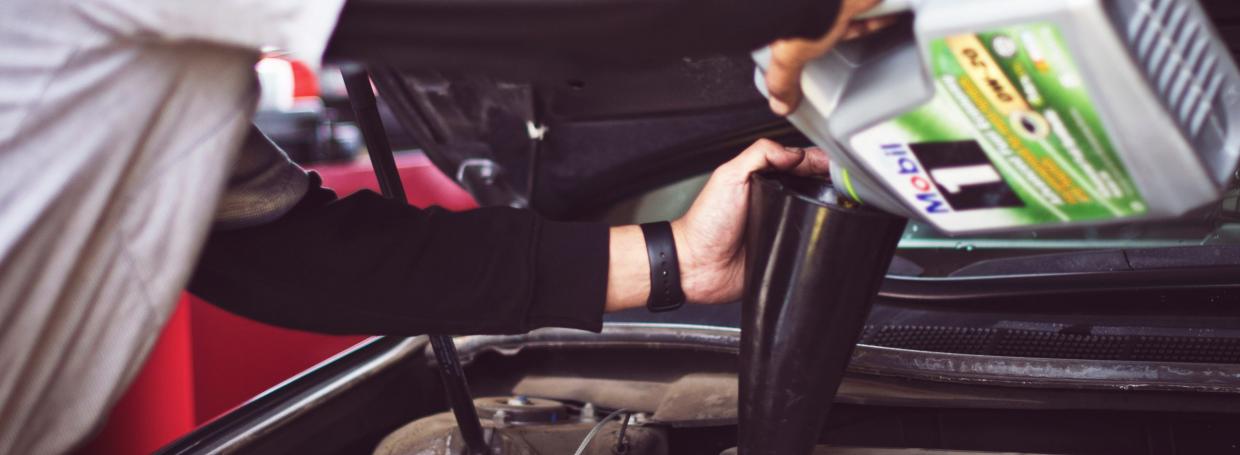Car Safety Tips | Why Your Car is Growling

Why Is Your Car Growling and Groaning?
Reading time: 3 mins
Have you been hearing weird sounds from your engine? If it’s growling and groaning like a bear, your intuition is probably already alerting you that something may be amiss. It could be caused by various reasons, and it’s definitely something you should check on immediately. Paying attention to the rumblings that your car emits can help you avoid mishaps when driving.
If you are a seasoned driver, you may be able to pinpoint the cause of this noise easily. But, sometimes you’ll need an experienced assessment of the situation. If this is the case, take your car to the mechanic immediately and describe the noise you’ve been hearing.
Here are some common reasons why your engine is growling and groaning;
1. The coolant system is low or needs servicing
When was the last time you checked the coolant level in your radiator? When the coolant levels are low, your radiator fills up with air. These air-pockets can cause your car to overheat, giving out a groaning or growling sound. The trapped air can also warp other parts of your engine, causing further damage.
Pro-tip: Check with your mechanic to ensure a cooling system bleeder valve or a funnel on the radiator is used to clear the pockets of air before refilling it.
2. There’s a blown head gasket
If your car is not running well like it usually does, then the head gasket could be blown. The head gasket sits between your car’s engine and the coolant as well as oil return passages. Basically, it serves as a barrier that prevents fluids from leaking into the engine. A blown head gasket happens when the seal between the cylinder head and engine gives way. This can cause fluids to leak into your engine, causing the growling sound and poor engine performance.
Pro-tip: Bear in mind that head gasket sealants do not fix anything. It might plug the leak temporarily, but it is likely to give way again. Don’t just settle for a quick fix, consider changing your head gasket altogether.
3. Your power-steering fluid is low or the pump needs to be changed
A power steering pump is what helps steer your car. So, if you hear growls and groans when turning, it may be time to get it changed. Although it’s possible that your power steering pump is malfunctioning just because the fluid is low, it’s definitely something you should check with your auto repair shop. The last thing you want is to be caught in a situation where you cannot make a proper turn with your car, causing an accident.
Pro-tip: If you feel your steering wheel vibrating, this could also be a clear sign that you need to top-up your power-steering fluid or the pump needs to be replaced. Another thing to look out for is, if your car is pulling to one side. If you’ve already checked your steering and wheel alignments, then chances are that it’s because of a worn-out power steering pump or low fluid too.
4. Your wheel bearings are damaged
If there is a growling or groaning noise coming from your wheel or tyre, take note that this is very likely caused by a bad wheel bearing — especially if the noise gets louder as the vehicle accelerates.
The wheel-bearings on your car helps reduce friction when the wheel spins. So, if you suspect that one of your wheel bearings is damaged or beginning to fail, have it inspected immediately. It is not safe to drive with damaged wheel bearings even for a short while. Your mechanic should be able to diagnose the problem and replace this with new bearings.
Pro-tip: Another quick way to check your wheel bearings is by grabbing the top and bottom edges of your car’s tyres. Movement should be very minimal or nonexistent when you try to wiggle your tyres up and down. However, if you notice a lot of movement, it means that your bearing is nearing the end of its life.
Get A Thorough Car Maintenance Check
It’s advisable to check these components, among other parts when you head to your mechanic for your next car inspection. And, although it may not be your area of expertise, you should be aware of what noises to hear out for and what to check with your mechanic when you do. Take note of our pro-tips and reach out to your trusted car workshop if your car starts growling or groaning.
Keep in mind that the results of some of these damaged components can be catastrophic. There’s a possibility that your car may just seize up while driving, so you shouldn’t take any chances. Even though you may be covered for such incidents — depending on the coverage of your car insurance — it's definitely something you should avoid, to minimize the risk of an accident.


